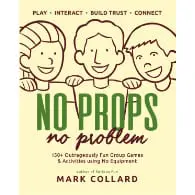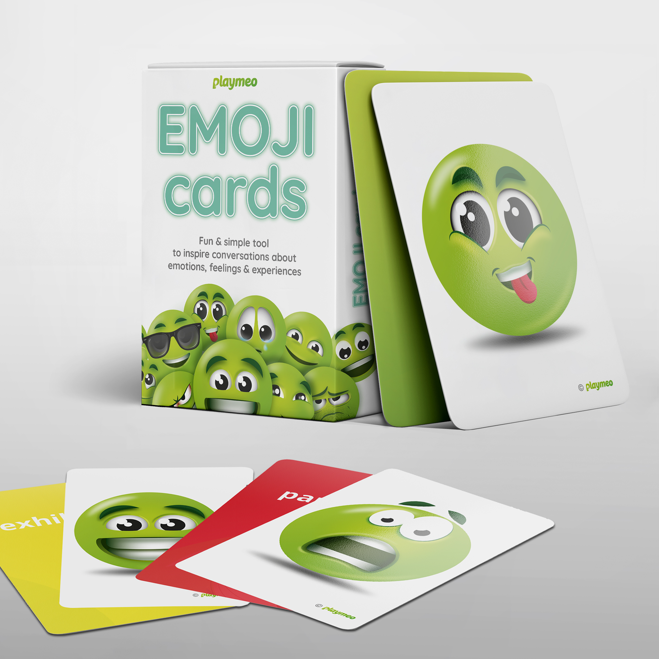20+ Fun & Engaging Ways to Form Random Pairs
So you’ve asked your group to pick a partner so that you can form smaller teams and… they immediately make a beeline to their best…

A conversation that was sparked during a recent 1:1 live support session focused on the importance and value of framing our group’s experiences.
In the context of facilitating group games & activities, framing is all about effectively preparing our group for what’s next as much as defining their expectations. As we all know, most upset and disappointment in the world is a result of unmet expectations.
As I have shared many times elsewhere on this platform, I truly believe that one of our most important roles as group facilitators is to create an environment in which our participants can make appropriate decisions.
When we fail to do this, eg we do not frame our groups’ experience adequately, we fail our groups and their possibilities.
In case this is new to you, take a look at Episode 14 of our popular Facilitator Tips video tutorial series for a brief discussion.
…
Just as a budget is never set in stone, the framing you offer your group’s experience must change too, adjusting to the changing needs of your group, not to mention the difference you are seeking to make.
For example, imagine if governments all over the world stuck to the budgets (just another word for framing their priorities) they set prior to the COVID-19 pandemic. It was tough enough as it was, but to have not adjusted to the needs of their community in a time of great need would have resulted in a bigger disaster.
The same is true for the way we ‘budget’ or plan for the programs we deliver to benefit our groups. Everything we say and do (and not say and do) contributes to the conversation we have with our groups and the narrative they are telling themselves about their experience.
You see, one of the most powerful factors that contribute to people’s disappointment is unmet expectations. They expect one thing – based on everything that has been said and done leading up to it – but they experience something else. And adequately framing your group’s experience in advance goes a long way towards avoiding disappointments.
This lesson was learned (most embarrassingly) in my early years as a facilitator when leading a father & son camping program. In advance, I had ‘sold’ this program as a high (challenge) rope course experience and expected it to be the highlight of their weekend camp. There was no doubt that, in the eyes of the client, they were going to experience the high ropes course, so there was (understandably) a lot of excitement.
Then, I met the group.
It was clear very, only moments after getting off the bus, that this was no ordinary group. Without going into too much detail, my fellow facilitators and I felt very uncomfortable about leading this group to the high elements. The group struggled to take any safety guidance seriously and thought everything was a joke, going so far as to deliberately allow some members of the group to fall off (unspotted) from the low elements.
I had to call it. As we looked on in shock and concern at the apparent disregard for their own safety, as lead facilitator, I announced that we would not be leading the group onto the high ropes course. There was no evidence that this group could participate safely in these higher-adventure experiences.
Now, I pissed off a client that day, but… I also learned a massive lesson about framing. Not that this excuses any part of their behaviour (it was truly abhorrent,) but I have to acknowledge that it was my fault this client left the program feeling very upset. They expected to experience the high ropes, and they didn’t. I had not framed their experience appropriately, and consequently, this led to a lot of upset.
With the benefit of hindsight, I would have done things differently (wouldn’t we all?)
Today, I am very careful and deliberate in the words I choose to use to paint a picture in the mind of my client about what they are about to experience. Framing builds a narrative in the mind of the participants, and the more prepared they feel, the more likely they will experience success.
In the case of this father & son camping program, I could have prevented a lot of upset if I had sold this program as “an opportunity to experience the high ropes.” This opens the possibility that they may not, or more clearly, that if they play their cards right, they may get to play on the high ropes. See the difference?
Using words like ‘opportunity’ and ‘interaction’ plays into the world of possibility and provides me with a lot more flexibility to adjust my program appropriately to make a difference to my client.
Here are a few other examples of the actual words I use on occasion to frame (or reframe) my group’s experience:
Everything is created in language, including the words our groups choose to create the narrative and story they are telling themselves. The words we choose to say – or not – will frame the experience and expectations of our participants, every time.
If you’d like some help in building a program or sequence of activities that appropriately frames your group’s experience, reach out to me by clicking the link below.
Seek 1:1 Live Support
What’s an example of a powerful framing experience you had led? Please share in the Comments below…

Best-selling book featuring 150+ fun group games & activities. Scan QR codes to access digital content including videos.

Brand new deck of cards featuring emoji images to help you inspire conversations about emotions, feelings & experiences.
Download our free 28-page ebook jam-packed with outrageously fun activity ideas.
Just one more question:
We offer a range of membership plans with no surprises.
Click an option below & discover our simple pricing.

Click here if you’re a:

Click here if you represent a:
Explore plans for
10, 50, 200 or more
potential users
thanks. Mark, it is a very insightful sharing.
I have some ideas about framing.
like:
1. this program is not like a model answer, it is a model framework.
2. the handout prepared is for some extra time we had. we normally can’t finish all. we should expect to create a better experience instead of writing notes, right?
3. my wording is not commending you but for your behavior.
4. To reach a peak experience, it relies on your full participation and helping each other to achieve this end. Are you ready?
any comments about these suggestions?
Thanks for sharing your thoughts, Sam. I like what you are saying in those example statements – it’s all about preparing our groups and their mindset for what’s expected of them and what they expect of themselves.